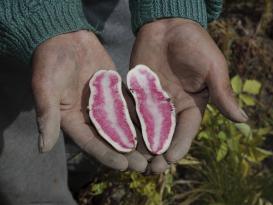Climate change strongly affects Latin America, causing glacial retreat, floodings, droughts, rising sea levels, and biodiversity loss. These changes severely threaten indigenous communities' livelihoods and well-being. Nowadays indigenous communities’ knowledge is considered relevant for facing climate change and achieving sustainable development, but their knowledge was underestimated in the past. Before the 1980s, nation-states and development projects that possessed a Eurocentric vision used to argue that modern knowledge and technologies were necessary for the development of Global South countries. The Peruvian case illustrates was not an exception to this trend.
Indeed, development theories played significant roles in determining how external actors addressed the problems of indigenous communities, which also affected how peasants’ traditional knowledge and technologies were assessed. For example, in the 1950s and 1960s, development anthropology projects aimed to transform these communities according to modern Western programs without considering their traditional practices. Nonetheless, this situation changed when facing the growth of international environmental discourse since the 1980s. Since the last decades of the past century, Peru’s indigenous peasants have gone from being depicted as uneducated subjects to knowledgeable actors that help solve local and global problems. This research examines how the Peruvian indigenous peasantry has changed from being considered—by local and international technicians and politicians—to be subjects who need to be trained and supported by Western development-aid programs to producers of knowledge on sustainable farming practices. The research also examines the knowledge production about and the circulation of agricultural and environmental issues among peasants, scientists, and technicians in Peru during the second half of the twentieth century by following perspectives of global history and the history of technology and science.

